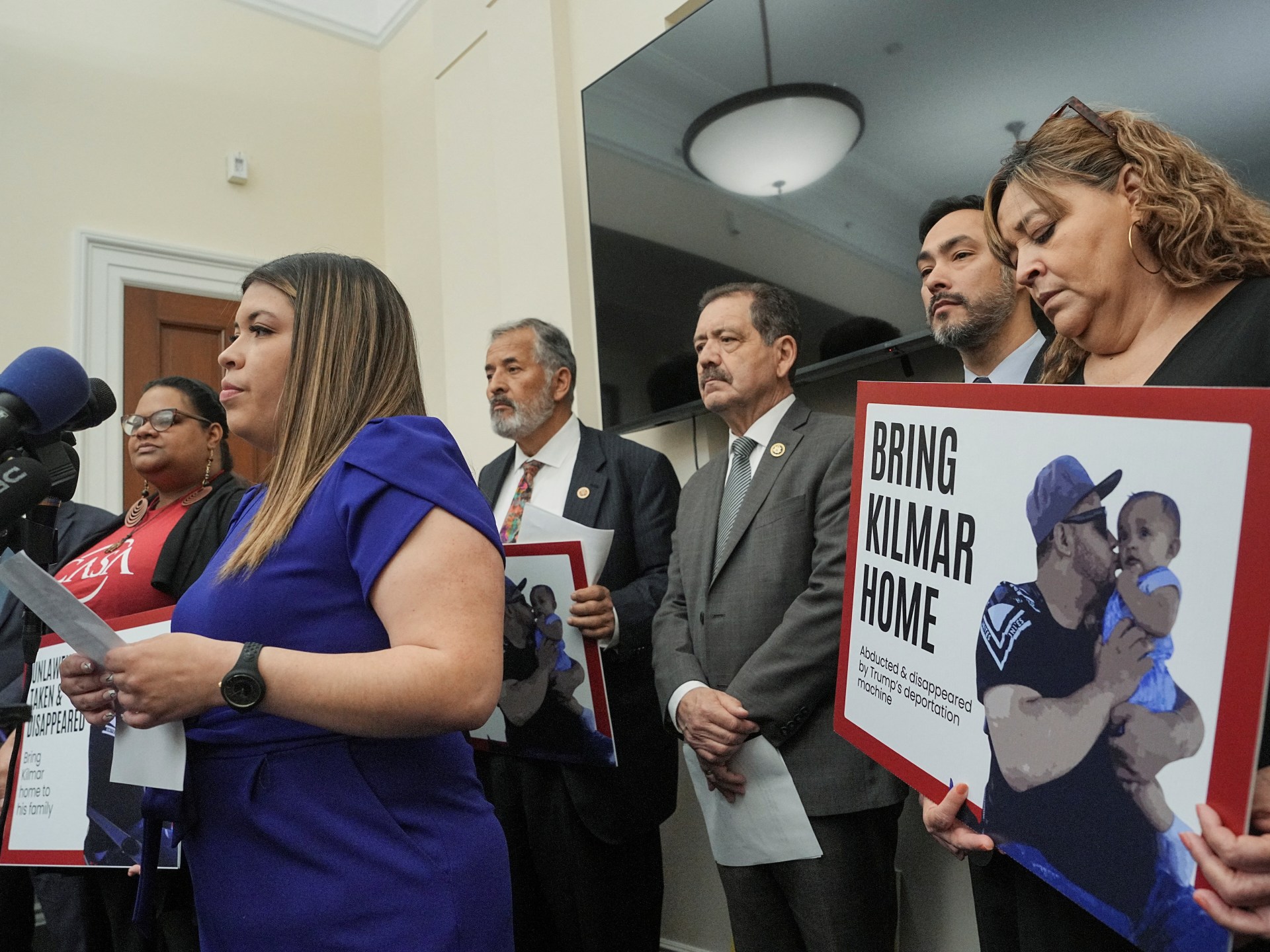The Trump administration tells court Kilmar Abrego Garcia remains confined in a notorious prison but keeps mum on his return.
The Trump administration has acknowledged before a federal court that an immigrant, who was mistakenly deported last month, remains confined in a notorious prison in El Salvador, but refused to say what steps it is taking to return him to the United States.
In a court filing on Saturday, the US State Department said Kilmar Abrego Garcia is “alive and secure” in prison, and that he is under the authority of El Salvador’s government.
Abrego Garcia, 29, was living in the eastern state of Maryland for 14 years, until he was mistakenly sent to El Salvador along with more than 200 other people, as part of President Donald Trump’s widespread crackdown on undocumented migrants.
Since then, the US Supreme Court has issued an order demanding that the Trump administration return Abrego Garcia to the US.
The latest State Department filing comes a day after a government lawyer struggled in a hearing to provide US District Judge Paula Xinis with any information about Abrego Garcia’s whereabouts.
Judge Xinis issued an order on Friday requiring the administration to disclose Abrego Garcia’s “current physical location and custodial status” and “what steps, if any, Defendants have taken [and] will take, and when, to facilitate” his return.
Michael G Kozak, who identified himself in the filing as a “Senior Bureau Official” in the State Department’s Bureau of Western Hemisphere Affairs, said in the latest filing that Abrego Garcia “is alive and secure” in the El Salvador facility.
“He is detained pursuant to the sovereign, domestic authority of El Salvador.”
On Friday, Xinis was exasperated with the government’s lack of information.
“Where is he and under whose authority?” the judge said during the hearing.
“I’m not asking for state secrets. All I know is that he’s not here. The government was prohibited from sending him to El Salvador, and now I’m asking a very simple question: Where is he?”
The judge repeatedly asked a government lawyer about what had been done to return Abrego Garcia, asking pointedly: “Have they done anything?”
Drew Ensign, a deputy assistant attorney general, also told Xinis that he had no knowledge about any actions or plans to return Garcia.
Ensign told the judge the government was “actively considering what could be done” and said Abrego Garcia’s case involved three cabinet agencies and significant coordination.
Abrego Garcia had lived in the US for about 14 years, during which he worked in construction, got married and was raising three children with disabilities, according to court records.
If he is returned, he will get to face the allegations that prompted his expulsion: a 2019 accusation from local police in Maryland that he was an MS-13 gang member.
Abrego Garcia had denied the allegation and was never charged with a crime, his lawyers said.
The controversy comes as Trump is due to meet El Salvador‘s President Nayib Bukele at the White House on Monday.
Asked on Friday if Trump would seek the return of Abrego Garcia when he meets Bukele, White House spokeswoman Karoline Leavitt said the Supreme Court ruling made clear the administration’s responsibility was to “facilitate” Garcia’s return, “not to effectuate the return”.
